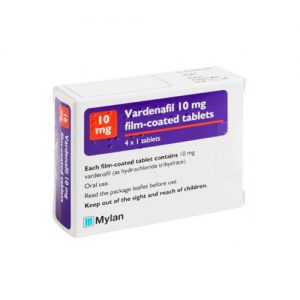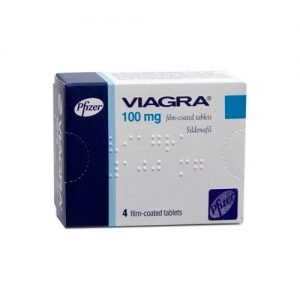Showing 10 products
Pagination
What is ED?
Erectile dysfunction happens when a man is unable to get or maintain an erection, making penetrative sex difficult and in some cases impossible.
It can have a major effect on confidence and cause relationship issues. ED is common, especially in men over the age of 40, but it can affect men of all ages.
How to get an ED Medication Prescription
Once your consultation and order has been reviewed by our expert prescribers, we will deliver it to your door. You can get your erections back with just a prescription from our professional team.
The only way our doctors can suggest a treatment for erectile dysfunction is if they can determine the underlying cause. Know your cause, get prescription medication, and you are now ready to be sexually active with healthy lifestyle changes.
What causes ED?
Often, ED is temporary and is caused by stress, anxiety, tiredness or drinking too much alcohol. In cases like these, it usually goes away without the need for treatment. However, if it persists, it might be caused by physical or emotional problems.
A narrowing of blood vessels in the penis can cause ED, and this can be triggered by high blood pressure, high cholesterol or diabetes. Hormone problems can also lead to difficulties getting an erection, as can nerve damage caused by surgery or conditions such as multiple sclerosis. ED is also a side effect of certain medications.
Emotional issues including depression, anxiety, stress and relationship problems can also result in ED.
What treatments are available for ED?
The recommended treatments for erectile dysfunction vary depending on its root cause. In many cases, addressing the physical or psychological reason for ED will resolve the issue. Medicines such as sildenafil (which you may know under the brand name Viagra) are also often used to treat erectile dysfunction. They work by increasing blood flow to the penis.
At Access Doctor, as well as sildenafil (Viagra), we offer treatments such as avanafil (Spedra), tadalafil (Cialis) and vardenafil (Levitra), which work in a similar way.
Other treatments for erectile dysfunction are:
- Oral Medications.
- A therapeutic session of sexual activity.
- Needles are inserted into the penile area.
- Mechanical vacuums.
- Meds are inserted into the urethra or Intraurethral medication.
- A penile implant (surgery)
All varieties come with their own set of benefits and drawbacks. Your doctor is the best person to help you make decisions about your treatment and get your erectile dysfunction treated.
It is important to identify the root cause of ED before choosing treatment options. Following that, proper drug therapy or alternative treatments can start. A guy can restore normal sexual function through a variety of surgical and non-surgical methods.
Complete a quick and easy online consultation today to discover your options.
Treatment for erectile dysfunction via non-surgical means
For erectile dysfunction treatment, without resorting to surgery, several methods are used to keep things under control. Let's check out a few of them which are discussed below.
Medication
Prescription drugs are the first recommended way for erectile dysfunction (ED) treatment. They stimulate blood flow to the penis and improves erection by expanding blood vessels. Multiple drugs that are commonly prescribed are named below.
Sildenafil (Viagra®)
The drug sildenafil is frequently used as one of the best treatment options for erectile dysfunction. This medication is also known by the brand name Viagra. It is well-known, branded, and trustworthy. By enhancing erectile function, this pill can help to improve sexual well-being.
This pill's key features include,
- a) Only active in response to sexual stimuli.
- b) Lasts up to 5 hours.
- c) Active after 30 minutes of a meal.
Vardenafil (Levitra®)
Levitra is another brand name for the drug Vardenafil. It is an effective and affordable drug for treating erectile dysfunction in men with diabetes.
Key features include,
- a) Inactive until stimulated sexually.
- b) Time Duration: Up to 5 hours.
- c) Enables a freer approach.
Tadalafil (Cialis®)
Tadalafil or Cialis is another drug used to treat ED in men. It is reliable and cost-effective. Most of the time, prescribed to use with food.
Key features include,
- a) Only becomes active in response to sexual stimulation.
- b) It takes 30 minutes to work, but it can last up to 36 hours.
- c) Also, allows spontaneity.
Spedra (Avanafil®)
The active component in Spedra is also known as Avanafil. It can be used by men who have experienced adverse reactions to other ED medication for erectile dysfunction treatment, such as Sildenafil (Viagra) or Tadalafil (Cialis).
Among the key features are:
- a) Only becomes active after being stimulated sexually.
- b) Can keep going for up to 5 hours.
- c) It gets active after 20 minutes.
Oral use of some nitrate-containing drugs causes hypertension (low blood pressure) and must be avoided when treating ED.
At Access Doctor, we offer ED treatments such as avanafil (Spedra), tadalafil (Cialis), sildenafil (Viagra), and vardenafil (Levitra).
Mechanical ED treatments
Erectile aids such as penile constriction rings or vacuum erection devices are used by certain men. The vacuum device treats erectile dysfunction when used as directed.
Many guys can regain an erection by using a vacuum device. These devices work by applying negative pressure to the penis, which promotes blood supply. A band is usually wrapped around the base of the penis to keep the engorgement in place.
Treatment through penile injections
Men inject drugs into the penile erection chambers to get an erection. Injection therapy treats erection issues caused by vascular, neurologic, and psychological illnesses.
With the use of a needle or syringe, medicines are injected into his penis. The blood vessels then expand and blood flow is increased. This procedure has been popular since the 1980s. Prostaglandin E1 (alprostadil), papaverine (Papacon®), and phentolamine (Regitine®) are commonly utilized for penile injection therapy.
Psychological and erotic/sex therapies
Even when there are clear physical causes, erectile dysfunction can also be caused by disturbed mental well-being. Anxiety, fear, or guilt are the main causes, but therapy can help. Most men can benefit from sex therapy when it is done by an experienced therapist.
Sex therapy also helps a man's partner understand and deal with his problems. Before trying any other treatments, a person with ED who has a clear psychological cause should get sex therapy counselling.
Testosterone replacement therapy
Low levels of male sex hormone “Testosterone” can induce erectile dysfunction. It is then applied to cope with this condition through gels, creams, patches, injections, and pellets.
Before moving into the next alternative treatments available, let us help you to clear your guts first. You might be thinking about how you can know which non-surgical treatment or which prescription drugs suit you best. Worry not!
As we carry such a diverse selection of products, you should have no trouble locating what is most suited to your condition.
Erectile dysfunction treatment via surgical means
When non-drug methods have failed, ED surgery is an option. A surgical way to treat ED is to put an implant in the penile area called Penile Prosthesis Surgery.
Penile implants are devices that go all the way through your body to your penile area. The process is very similar to a natural erection. It is a great way to improve the quality of your relationships and make them more spontaneous.
Penile Implants
There are two kinds of implants for the penile area.
1. Semi-rigid Implant (Bendable)
The most basic kind of implant is made of two rods that are easy to bend and are usually made of silicone. These silicone rods give the man's penis the firmness it needs for sexual penetration. The implant can be bent down with ease to go to the bathroom and up when having a sexual process.
2. Inflatable Implant
Pair of inflatable cylinders are surgically placed in the penis erection chambers lengthwise. The cylinders are connected to a fluid reservoir under the lower abdominal muscles and a pump inside the scrotal sac by tubes.
The man squeezes the pump a few times to move fluid from the reservoir to the cylinders, which inflates the prosthesis. This makes the penis erect. When the prosthesis is inflated, it makes the penis stiff and thick, just like when a man has a normal erection. With the implant, men can control how hard their erection is. With this, a couple can be intimate whenever they want.
Are people satisfied with the penile implant surgical process?
Even though penile implant surgeries are risky, it has the highest rate of success and satisfaction of all treatments for erectile dysfunction.
About 95% of implant surgeries work to give men erections that allow them to have a healthy sex life. Also, patient satisfaction surveys show that up to 90% of men who have had penile implants say they would do it again, and that their overall satisfaction is higher than that of men who use oral medications or penile injection therapy.
Symptoms & Causes of Erectile Dysfunction
A symptom of an issue is a sign that things didn't go as planned. On the other hand, a problem's cause is what leads to the occurrence of the issue. After analysing these two, medical treatments are then given accordingly.
Regarding erectile dysfunction, let's discuss the following:
Symptoms of ED
When the penis becomes filled with blood, an erection occurs. An erection is the result of a coordinated effort between the man's blood vessels, muscles, nerves, and hormones when he is sexually aroused. Disruptions to this pathway can result in ED symptoms.
Some men only encounter the symptoms occasionally. Others report that the symptoms are persistent, to the point where it disrupts their sex life or sexual intercourse.
The following are some examples of symptoms that could diagnose erectile dysfunction:
- Having difficulty maintaining an erection.
- Having trouble retaining an erection for an extended period.
- Decreased sexual inclinations or impulses
Risk Factors: why men could have trouble getting or keeping an erection?
Erectile dysfunction can be a symptom that comes along with a wide variety of risk factors or underlying health conditions.
Some of the followings are potential direct risk factors for erectile dysfunction:
Discomforts relating to the prostate:
The prostate gland or simply the prostate, is the vital organ of a man's reproductive system. Males who suffer from prostate issues are more likely to have distressing sexual intercourse. One of them is erectile dysfunction.
Severe prostatitis (inflammation of the prostate) can make it hard to get an erection. In milder cases, the condition can cause a painful erection, which can interfere with sexual intercourse and may lead to sexual dysfunction.
Men with benign prostatic hyperplasia (BPH), which is a noncancerous enlargement of the prostate, may also have problems with getting an erection. Even though BPH doesn't cause these problems on its own, some over-the-counter drugs for it can.
Diabetes:
Long-term elevated blood sugar levels lead to male sexual dysfunction.
Maintaining high blood sugar levels for an extended period can cause blockage to the blood supply and nerve damage (neuropathy), including the nerves that nourish your penis. Due to this, the amount of blood that flows to your genital organs may be reduced, which may cause you to lose sexual desire for your sexual partner.
Hypertension (high blood pressure):
In men, high blood pressure has been shown to cause erectile dysfunction.
Long-term exposure to hypertension causes damage to the inner lining of artery, which in turn contributes to atherosclerosis, the hardening, and narrowing of arteries that restricts blood flow. This results in a reduction of blood circulation to the penis. Because of the reduction in blood flow, some men find it difficult to obtain and keep an erection.
In addition, several drugs to manage high blood pressure can also contribute to ED.
Hypercholesterolemia (high blood cholesterol):
Cholesterol is a fat-like substance, found in the blood. "Good cholesterol" is called HDL, and "bad cholesterol" is called LDL.
When there is too much LDL in the blood, plaque builds up in the arteries. This makes it hard for blood to flow through the body as it should. When these problems happen in the genital area and penis, they can cause erectile dysfunction or problems with getting an erection. The more LDL you have in your blood, the more likely you are to have trouble getting an erection or become sterile.
The body's ability to produce nitric oxide into the bloodstream is likewise affected by high cholesterol levels. Relaxation of the penile tissue, which in turn triggers the flow of blood that causes an erection, is dependent on nitric oxide.
Furthermore, inadequate testosterone production is associated with excessive cholesterol. For males, testosterone is the key sex hormone. It regulates sexual drive and desire and is essential to getting and keeping an erection going strong.
Peyronie's disorder:
Fibrous scar tissue that develops on the penis is another underlying cause of Peyronie's disease, a noncancerous illness. These erections are uncomfortable and curled and affect your sex life.
This can make it impossible for you to have sexual intercourse with your sexual partner. Peyronie's disorder also makes it difficult for you to get and keep an erection (erectile dysfunction).
Digestive and kidney diseases:
The research found that erectile dysfunction (ED) is common among males with a diagnosis of inflammatory bowel disease (IBD). This IBD term implies chronic inflammation of the gastrointestinal tract.
IBD can cause more frequent bowel movements, abdominal pain, loss of ability to hold bowels or urination, perianal fistula (improper juncture of the anal canal and perineal skin), abscesses, or skin tags, all of which can make people feel embarrassed, less confident, and less sexually interested.
Also, treating the disease with corticosteroids or surgery can cause mood changes, a bad view of the body, and scars that can be temporary or permanent. Constant fatigue is a burden for patients to bear, and it may affect their sexual desire and ability.
Chronic kidney diseases are also the underlying physical causes of erectile dysfunction. Urinary tract infection and severe kidney disease or renal failure are the two main causes of kidney problems
Cardiovascular diseases:
Erectile dysfunction and cardiovascular disease are closely associated with one another. The presence of erectile dysfunction (ED) is a risk factor for coronary artery disease.
Plaque build up in the arteries causes coronary heart disease by restricting blood circulation and preventing the arteries from working properly. Due to this blood flow problems also arise in the body. Vascular reconstructive surgery may also perform to recreate damaged arteries.
Obstructive sleep apnea:
It is a disease that happens when the upper airway collapses over and over again while sleeping. When it comes to potential causes of ED, obstructive sleep apnea (OSA) has received surprisingly little attention.
A man's testosterone levels may drop if he suffers from sleep deprivation because of sleep apnea. Oxygen intake could be reduced as a result. It's been scientifically shown that testosterone and oxygen both contribute to strong erections. Insufficient sleep is also connected to stress and fatigue, which may worsen sexual dysfunction.
Smoking:
Smoking is also another underlying cause of male sexual dysfunction.
Cigarette smoke contains substances that harm the lining of your blood vessels and impair their ability to function. The heart, brain, kidneys, and other organs are all vulnerable to the ill effects of chemical exposure.
As a result of the chemicals in cigarettes, the artery in the penis might become damaged, increasing the risk of ED. Neurons activate when the brain sends messages of sexual excitement to them. But, no matter how good the neural system is, if the artery is poor from smoking, an erection may be physically impossible.
Stress and depression:
Mental illness is also another cause. Disturbed mental health conditions leads to the development of many health issues including ED.
Your body will produce more of the hormone epinephrine when it senses that you are under stress or depression. When levels of epinephrine are high, it is difficult for the muscles and blood vessels of the penis to relax. Pelvic floor muscles also become tightened. This can cause discomfort in your sex life. In many cases, ED will go away once the source of the stress or worry has been addressed.
The Diagnostic Procedure Doctors Use to Confirm Erectile Dysfunction
It is not always an easy undertaking to discuss your sexual difficulties with your doctor. A debate of this nature is never simple. But, thanks in part to increased visibility regarding this issue and its treatment, many barriers have been broken down. Now, you can easily consult with your doctor.
The first thing that a doctor will want to know is usually about your medical history. They also might go through some blood tests and carry out physical examination to know the underlying physical cause. But, the following are some questions that they may ask.
- Have you ever been diagnosed with an underlying health condition?
- When did you last go to the hospital and what procedures did you have?
- What, if any, prescription drugs are you taking?
Your doctor will also probably inquire about your mental health condition and way of living as well.
- Have you been depressed before, or do you feel like you might be depressed now?
- Do you feel a lot of pressure at the moment?
- How often do you drink alcohol? Smoke?
How do doctors treat erectile dysfunction?
After carefully going over your answers, your physician determines the root of your erectile dysfunction through a physical examination and blood tests. After some clinical trials, your consultant provides you with a best treatment that would be successful.




We’re here to help.
Our friendly team is available to help Monday to Friday 9:00am - 5:00pm.
If you need urgent assistance, do not use this service. Call 111, or in an emergency call 999.










